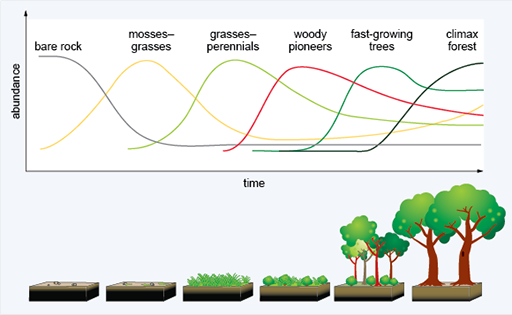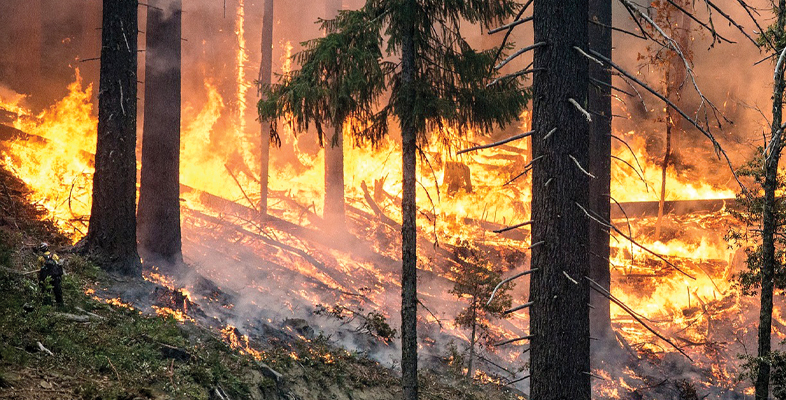4.1 Fire and ecological succession
Early successional communities establish themselves relatively quickly after a fire (rapid colonisers) while late successional communities establish themselves much later (Figure 21).

Although fires open up gaps for early successional communities, community composition – the number and diversity of species present – is profoundly affected by the fire regime, and in particular its frequency and/or intensity.
For example, if fires are frequent the community will be dominated by early-succession, opportunistic, fast-colonising, resistant species because species characterising later successional stages will not be able to become established before the next fire.
-
What kind of community would be expected if fires are rare?
-
The community tends to be dominated by a few highly competitive, late-succession species. These species outcompete earlier-colonising species and can become established before the next fire.
